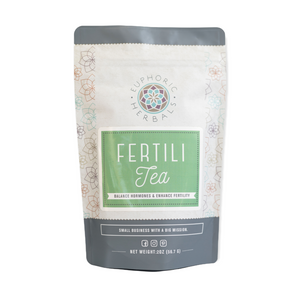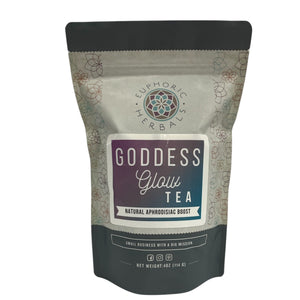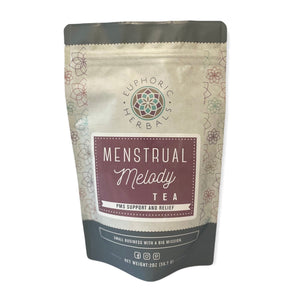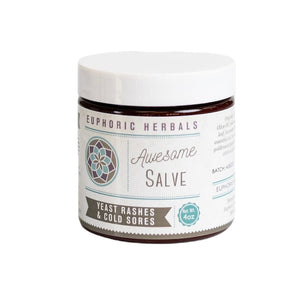What are Natural Remedies for Constipation?
Constipation is one of the most common digestive complaints. It can be defined in several different ways, including having fewer than three bowel movements a week, passing hard or painful stools, and feeling like your bowel movement is incomplete. (1)
Diet, hydration, and exercise are typically key pieces of the puzzle to keeping your digestion regular, but herbs can also be very helpful for both short- and long-term relief.
Here's more about which herbs are the best for constipation and some other natural remedies to keep in mind.
Types of Herbs for Constipation
When it comes to relieving constipation, there are few different categories of herbs that can be helpful.
The most familiar category is laxative herbs that forcibly stimulate your colon. These are very effective for quick constipation relief (and much better than chemical laxatives from the store) but should only be used occasionally.
Another very helpful group of herbs is those with a high mucilage content. This type forms a slippery substance when combined with water that helps waste to "slip" out of your colon. These herbs can both help to relieve constipation and keep you regular over time.
There are also herbs that simply help to improve your digestion as a whole. They aren't as effective for immediate relief but can help you to digest food better and avoid more episodes of constipation in the long run.
Of course, herbs that have a high fiber content help keep things moving as well.
Other Considerations for Constipation

There are three things that will help most people get rid of constipation or a sluggish digestion: consuming more fiber, drinking more water, and exercising regularly.
All three of these practices are key to regularity. Fiber and water are both essential for moving and eliminating waste out of your colon. Exercise, particularly the aerobic kind, also gets your digestion moving.
As you consider using herbs for constipation, see if you can improve any of these three areas as well.
However, there are always exceptions to any guidelines. Food intolerances, an underlying disease, nutrient deficiency, and stress can also cause constipation, even if you are getting enough water, fiber, etc. Try to find the root cause as you work at relieving your symptoms.
If nothing seems to work, try a combination of vitamin C and magnesium taken to bowel tolerance, then back off once they start working.
What are the best Herbs for Constipation?
Slippery Elm
Slippery elm bark is one of the best herbs for constipation because it forms a slippery, mucilaginous mixture when combined with water. (It tastes a lot better than it sounds!)
This mixture contains soluble fiber that helps your digestive system to keep moving and also acts as a prebiotic to improve gut health over time. Perhaps more importantly, the slipperiness can help relieve mild to moderate constipation relatively quickly.
Use It: Put 1-2 teaspoons of powdered slippery elm into a mug with a little honey if desired. Add a little hot water and whisk to get a very thick mixture. Then, add enough cool water to make it drinkable.
Marshmallow Root

Marshmallow root is similar to slippery elm in that it has a high mucilage content and forms a slippery mixture when water is added. It soothes inflammation in the digestive tract and helps waste to keep moving.
For the most relief, be sure to make a cold infusion, not a hot one (see below). The mucilage is best extracted this way.
Use It: Make a cold infusion by pouring 8 ounces of room temperature water over 1 tablespoon of marshmallow root. Let it steep on the counter or in the refrigerator overnight before using.
Psyllium
Psyllium is one of the best fiber-rich herbs to use for constipation or a sluggish digestion. It comes from a specific type of plantain and adds bulk to your stool to help it pass through your digestion more quickly. Psyllium also has mucilaginous properties that pull moisture in.
For maximum fiber, use psyllium husks. If your digestion is more on the sensitive side, try psyllium seeds (the inner part beneath the husk), which are a little gentler.
Use It: Psyllium can be mixed with any type of liquid, including smoothies. Be sure to always take it with at least 8 ounces of water or another liquid.
Triphala
Triphala is an Ayurvedic herbal formula that consists of three herbs: amla (Indian gooseberry), haritake, and bibhitaki. It's most frequently used to tone the digestive system and can be very effective for constipation.
Triphala does have a mild laxative effect, but it's most useful for getting your system regular rather than simply clearing it out.
Use It: Triphala is typically taken in powdered form by adding it to juice or water. The best time of day to take it is right before bed. If you can't manage the rather intense flavor, you can take it in something like these Colon Motility capsules.
Yellow Dock

Yellow dock is a cleansing herb that stimulates digestion and promotes the production of digestive enzymes. It contains compounds known as anthraquinone glycosides that give it mild laxative properties without the force of a true stimulant laxative.
Yellow dock also helps to tone digestive tissues, which makes it a good herb to consume regularly if you struggle with a sluggish digestion.
Use It: Combine 2-3 tablespoons of dried yellow dock root with a quart of water in a saucepan. Simmer for 20-30 minutes before straining and drinking the tea.
Peppermint
Peppermint has many benefits for digestion and can also be one of the best herbs for constipation. It doesn't have an immediate effect on bowel movements, but it does work to improve digestion long-term.
Some studies have even found that peppermint can be helpful for various symptoms of irritable bowel syndrome (IBS), including constipation. (1)
Use It: Steep dried peppermint leaf in hot water to make a tea. Steep for 8 hours or overnight to make a stronger herbal infusion.
Ginger
Ginger is particularly stimulating for a slow digestion because of its spicy nature. It helps with general indigestion and can also speed up stomach emptying. Taking it before a meal helps to get your digestive tract ready for food.
Like peppermint, ginger doesn't necessarily offer immediate relief for constipation, but it can "fire up" your digestion if you consume it regularly.
Use It: Try consuming a little raw ginger with lemon juice and salt before a meal to stimulate your digestive fire (an Ayurvedic technique). Or simmer fresh ginger root in water to make a tea and drink as needed.
Fennel Seed

Fennel seeds are another great digestive tonic that help your digestive system to function better as a whole. They can ease gas and indigestion and also help to stimulate digestive juices, particularly when consumed before a meal.
Drinking fennel tea or chewing the seeds before a meal will help with your regularity over time.
Use It: Fennel seeds can be chewed whole before or after a meal to aid digestion (and freshen your breath). Or you can use fennel seeds to make a tea and drink it as often as needed.
What are Digestive Bitters?
Digestive bitters are probably one of the best combinations of herbs for constipation and a sluggish digestion. They are a made up of herbs- usually extracted in alcohol- containing bitter compounds that stimulate bile production and digestion.
Again, digestive bitters are not for immediate constipation relief, but they can work wonders in the long run if you use them daily.
Use It: Common herbs in a digestive bitters formula include dandelion, gentian, angelica, and ginger. You can make your own or buy a ready-made version and take it before or after meals.
What are Laxative Herbs?
If you need immediate relief and not much else is working, you can turn to stimulant laxative herbs. This specific group of herbs for constipation contains the compounds known as anthraquinones in large enough amounts that they forcibly stimulate your colon.
The most common laxative herbs are senna, cascara sagrada, Turkey rhubarb, and aloe latex. Most often, they are used in combination with one another and/or herbs like fennel and peppermint rather than alone.
Be sure to only use this type of herb occasionally.
Use It: Laxative herbs can be taken in capsules or as a tea. They typically take about 8 hours to work and are best taken before you go to bed for a bowel movement in the morning.
Precautions
Before using any type of herb, be sure to do your research on it to find out if there are any specific contraindications. As an example, stimulant laxative herbs are typically contraindicated during pregnancy and breastfeeding.
For the most part, it's best to take the herbs listed here in tea form or with plenty of liquid. Dehydration can be a direct cause of constipation, so adding in water or another liquid will enhance the effects of the herbs.
Overcoming Constipation
Constipation can be one of the most frustrating issues to struggle with. Herbs go a long way towards providing support, but don't forget to change other aspects of your lifestyle as well, particularly fiber intake, hydration, and exercise.
Use digestion-supporting herbs regularly for the best results, and don't hesitate to contact a healthcare professional if your symptoms don't go away.
Disclaimer: This post is for informational purposes only. It does not constitute medical advice and should not be substituted for medical advice. Please consult your health care provider, herbalist, midwife, or naturopathic physician before taking herbs, supplements, etc. Here's the link to our full disclaimer.














































































































































































